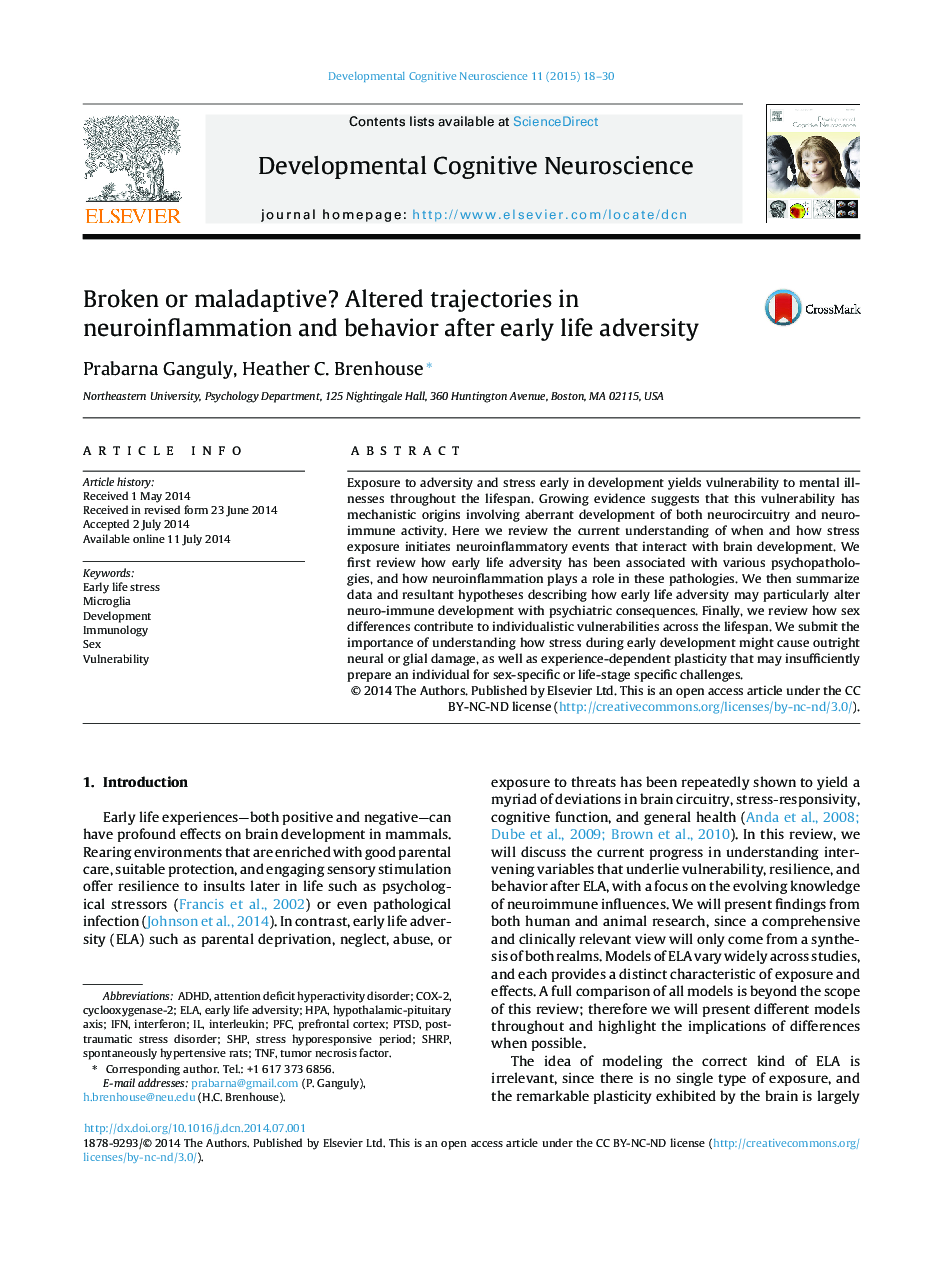| Article ID | Journal | Published Year | Pages | File Type |
|---|---|---|---|---|
| 4316568 | Developmental Cognitive Neuroscience | 2015 | 13 Pages |
•This paper reviews how early life adversity alters neuroimmune mechanisms.•Neuroimmune sensitization from early life adversity impacts circuitry at discrete life stages.•Neuroimmune and neurodevelopmental influences can impact behavior and vulnerability.•Sexual dimorphism in immune and brain development yield distinct effects of early life adversity.
Exposure to adversity and stress early in development yields vulnerability to mental illnesses throughout the lifespan. Growing evidence suggests that this vulnerability has mechanistic origins involving aberrant development of both neurocircuitry and neuro-immune activity. Here we review the current understanding of when and how stress exposure initiates neuroinflammatory events that interact with brain development. We first review how early life adversity has been associated with various psychopathologies, and how neuroinflammation plays a role in these pathologies. We then summarize data and resultant hypotheses describing how early life adversity may particularly alter neuro-immune development with psychiatric consequences. Finally, we review how sex differences contribute to individualistic vulnerabilities across the lifespan. We submit the importance of understanding how stress during early development might cause outright neural or glial damage, as well as experience-dependent plasticity that may insufficiently prepare an individual for sex-specific or life-stage specific challenges.
